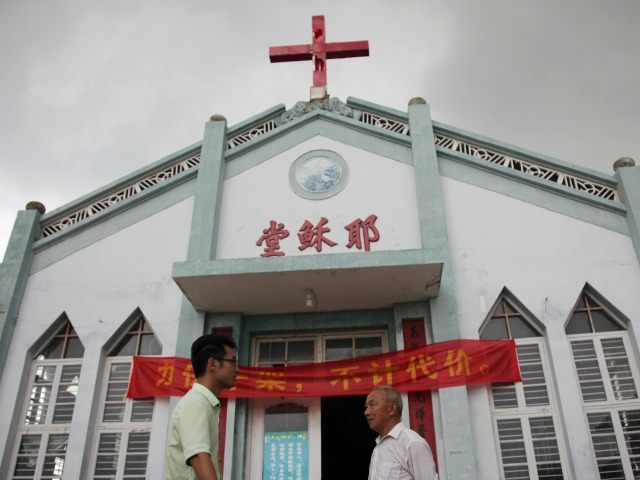A new survey published in Chinese state-run newspaper, the Global Times, finds young Chinese nationals increasingly attracted to religion, with Islam the most popular religion among people under 30 and Protestantism the religion with the largest number of places of worship in the country.
While China is a communist country and routinely discourages religious practice, the International Business Times notes that five religions are legal to practice in China: Buddhism, Taoism, Catholicism, Protestantism, and Islam. The survey, part of a study by the National Survey Research Center at Beijing’s Renmin University, finds that younger Chinese people are more attracted to religion than their predecessors–and to different religions not native to China. While Buddhism remains the religion with the largest number of absolute followers, it is the numbers among China’s youth that show a sea change in national attitudes toward religion.
The study, conducted between 2013 and 2015, found that 22.4 percent of people under 30 years old identified as Muslim, while 22 percent identified as Catholic. Buddhism and Taoism were the two most popular religions among people over 60 years of age.
“Most believers of Islam belong to ethnic minority groups and it is common for a woman to give birth to several children,” explained professor Wei Dedong, who participated in the survey, as a reason for younger people preferring Islam. “The children would also become Muslims while it is very rare to have an adult converting to Islam.”
The Global Times notes that the survey also found that 60 percent of workers at places of worship believed the government was “fair” in the way they regulate religion, a finding with a particularly odd timing given the growing controversy surrounding the Chinese government’s attempts to crack down on the open observance of the Muslim holy month of Ramadan.
In Xinjiang, the westernmost province of China, officials have forced Communist Party members to refrain from public fasting during Ramadan and have forced stores to sell alcohol and cigarettes, both banned by the Koran. In 2014, an ordinance officially banned the practice of religion by those involved in government work, and both the burqa and male Islamic garb have been banned in public places.
Xinjiang is not only a heavily Muslim-populated region, but one with a large community of ethnic Uyghur Muslims, a Turkic people of whom the Chinese government is highly suspicious. Most of these crackdowns on Islam followed claims that Islamist extremism and terrorism were on the rise in the region, thanks to illicit activities in the Uyghur community.
Allies of the Chinese government claim that Islam is still practiced freely in the nation. “It is sufficient that freedom is given to freely observe your religion. Do not play with politics,” advised an Indonesian Muslim scholar this week, speaking before the Chinese ambassador to Jakarta. “In Beijing, people prayed peacefully in six mosques. In Guangzhou, I visited the inheritance of Saad bin Abi Waqqas (an early Muslim who was a close friend of Prophet Muhammad). The atmosphere was quiet. There were many satay sellers, they were all Muslims,” said Said Aq il Siradj, a local Muslim leader. He did not mention Xinjiang.
The treatment of Uyghurs in Xinjiang has caught the attention of the Turkish government. Turkish nationalists see the Turkic Uyghurs as part of their same ethnic family, and protests have begun to sprout in Istanbul against the Chinese government. Unfortunately, those leading the protests have accidentally failed to target the Chinese, instead harassing Korean tourists and, in one case, a Uyghur living in Turkey.
While Islam has grown in western China, Christianity has also grown at an exponential rate elsewhere in the nation. One 2014 study found that more people in China identified as Christians than as members of the Chinese Communist Party when taking into consideration both converts to Catholicism and new members of Protestant churches. The result has been a crackdown on Christianity, as well, with government officials forcing churches to tear down the crosses atop their spires.
“They were unable to speak reasonably with us, or say why they were taking down our cross,” said a church member in Zhejiang this week describing the process of removal. “We felt that the government’s intention was to attack this church, gradually stepping up the pressure on it, step by step,” the church’s attorney stated, noting that he would work to condemn the “illegal action” by the government.

COMMENTS
Please let us know if you're having issues with commenting.